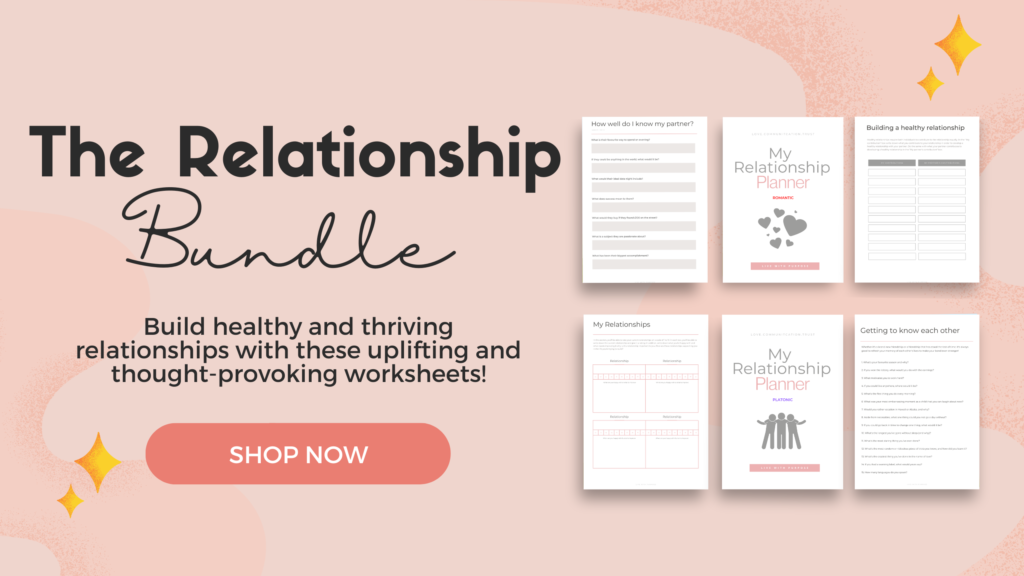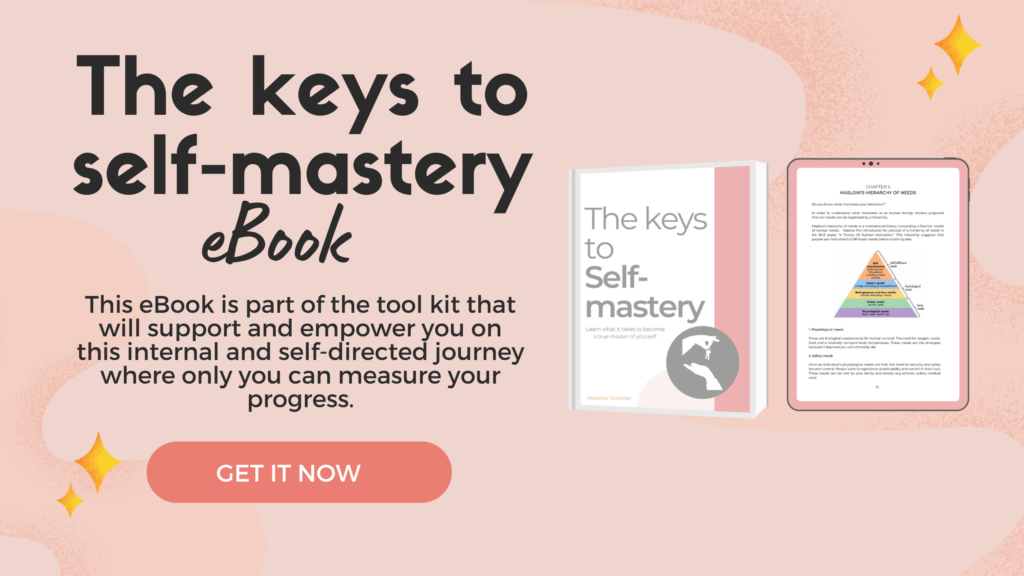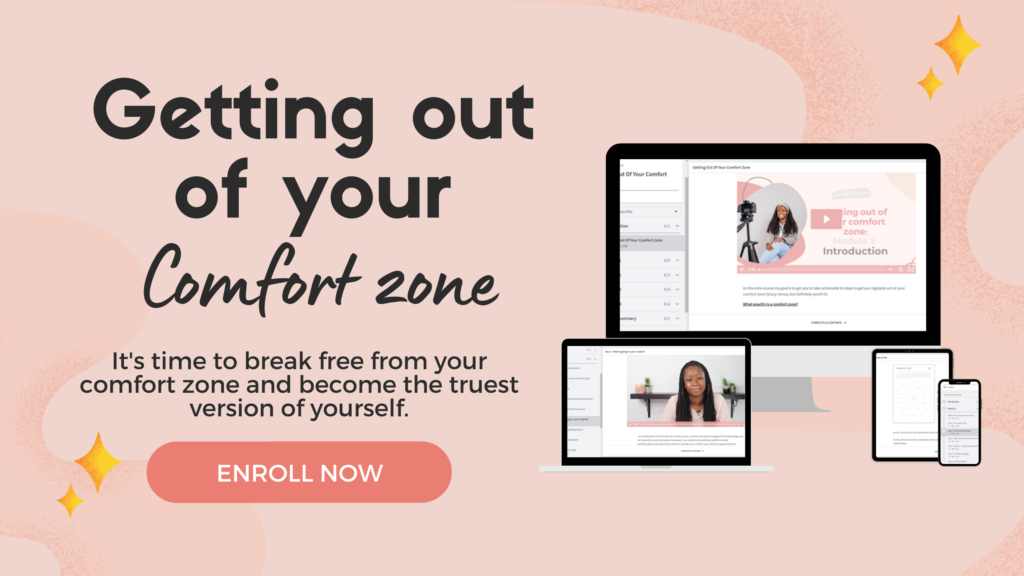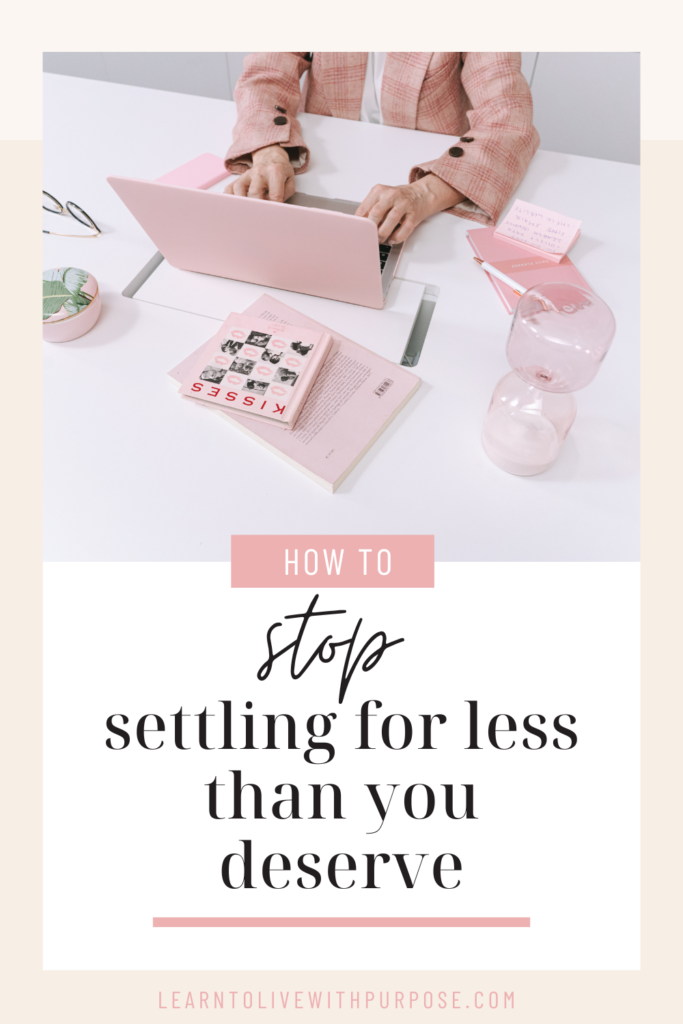
In a world that often emphasises the value of social connections, there’s an important distinction to be made between being alone and feeling lonely.
Many people associate solitude with a sense of isolation or sadness, but the truth is that being alone can be a fulfilling and rejuvenating experience. 😊
In this blog post, I will explore the nuances of being alone versus feeling lonely, understanding the importance of solitude, and embracing the positive aspects of both states.
Let’s get to it. 💕
The Difference Between Being Alone and Feeling Lonely:
Being Alone:
Being alone is a state of physical solitude, where you find yourself without the company of others. It can occur by choice or as a natural consequence of circumstances. Spending time alone provides an opportunity for self-reflection, relaxation, and personal growth.
It allows you to engage in activities that bring you joy, pursue hobbies, or simply enjoy a moment of peace. Being alone can be a deliberate choice, a time to recharge and connect with oneself. 🥰
Feeling Lonely:
Loneliness, on the other hand, is an emotional state that arises from a perceived lack of meaningful connections. It’s possible to feel lonely even in a crowded room if the connections are superficial or unfulfilling.
Loneliness is often characterised by a sense of emptiness, isolation, or a longing for deeper human connections. It’s a complex emotional experience that can impact mental and physical well-being. 😟

Embracing the Positive Aspects of Being Alone:
1. Self-Discovery:
Being alone provides an opportunity for self-discovery. It allows you to explore your thoughts, feelings, and interests without external influences. Use this time to reflect on your goals, values, and aspirations. Self-discovery is a crucial aspect of personal growth and can lead to a deeper understanding of oneself.
2. Independence:
Embracing solitude fosters independence. When you’re comfortable being alone, you become more self-reliant and less reliant on others for your happiness. This independence can empower you to make decisions based on your own needs and preferences, leading to a more authentic and fulfilling life. 🥰
3. Creativity:
Solitude often sparks creativity. When you’re alone with your thoughts, you have the mental space to generate new ideas, think critically, and engage in creative pursuits (yaay). Many artists, writers, and innovators find inspiration in moments of solitude, leading to the creation of meaningful and impactful work. 🎨
4. Rest and Rejuvenation:
Being alone allows for rest and rejuvenation. In a world filled with constant stimuli, taking time for solitude can be a form of self-care. It provides an opportunity to relax, recharge, and focus on activities that bring you peace and joy, contributing to overall well-being.

Addressing the Challenges of Feeling Lonely:
1. Cultivating Meaningful Connections:
If loneliness arises from a lack of meaningful connections, focus on cultivating relationships that nourish your soul. Seek out individuals who share your values and interests. Join clubs, organisations, or communities where you can meet like-minded people. Focus on getting yourself out there. Quality connections are often more fulfilling than a large social circle. 🫂
2. Volunteering and Giving Back:
Engaging in volunteer work or contributing to your community can alleviate feelings of loneliness. By helping others, you not only make a positive impact on the world but also connect with individuals who share a common purpose. Volunteering provides a sense of belonging and fulfillment.
3. Seeking Professional Support:
If loneliness becomes a persistent and overwhelming emotion, maybe consider seeking professional support. A therapist or counselor can provide guidance and a safe space to explore the root causes of loneliness. Addressing these issues with professional help can lead to a more fulfilling and connected life. 🫶
Finding Balance:
The key to a fulfilling life lies in finding a balance between being alone and fostering meaningful connections. Embrace solitude as a time for self-discovery, creativity, and rejuvenation. At the same time, actively cultivate relationships that bring joy and fulfillment. Recognise that both states are essential for a well-rounded and satisfying life. 💕
Conclusion
Being alone and feeling lonely are two distinct experiences, each with its own set of opportunities and challenges. Embracing solitude allows for self-discovery, independence, creativity, and rest. However, if loneliness creeps in, it’s crucial to address it by cultivating meaningful connections, volunteering, or seeking professional support. You are not alone. ❤️
Understanding the nuances between being alone and feeling lonely empowers you to navigate both states with intention and purpose. Ultimately, finding a balance between solitude and social connections contributes to a rich and fulfilling life. Embrace the positive aspects of being alone, foster meaningful connections, and savor the journey of self-discovery in this beautiful dance between solitude and companionship.
Pin this post for a reminder 📌 👇

Related Blogs
Things to Say “No” to for you to Live a Happier Life
How to Stop Settling For Less Than You Deserve
How to Become the Best Version of Yourself: A Guide For 20-Somethings
When you spend your time doing something day in, day out, for years on end, it can get pretty challenging to continue to find new ways to keep things fresh.
The same goes for any activity that is part of your everyday life and not simply something that you do from time to time. These kinds of activities become such a big part of your life that even the smallest details begin to impact you on a regular basis.
Self-limiting beliefs are not just challenges that performers face – they are universal challenges that we all deal with at one point or another in our lives. If you’re a performer who also happens to be human 😂, there’s a good chance that you’ve experienced some self-limiting beliefs (even if they weren’t framed as such at the time).
Perhaps they manifested themselves as procrastination, fear of failure, nervousness about stepping outside of your comfort zone…no matter what form they took, they were probably very annoying. 😒
What Are Self-Limiting Beliefs?
A self-limiting belief is any idea you have about yourself (or some aspect of your life) that holds you back.
It might be something that you tell yourself, like “I’m not creative enough to do X” or “I’m not good at Y because of Z.” Or it might be something that you’ve been told by someone else, like “You’re too old to learn X,” or “You’re not smart enough to do Y.” ☹️
Beliefs are formed in the early stages of our lives and the more we live by them the harder they are to get rid of.
Self-limiting beliefs can take a lot of shapes and forms. Some of the most common include:
👉 Having a smaller vision of what you’re capable of.
👉 Believing that you’re not good enough.
👉 Taking on unnecessary self-imposed limitations.
👉 Carrying around guilt, shame, and regret.
👉 Failing to forgive yourself for past mistakes.
👉 Letting fear control your decisions and actions.

Why Are Self-Limiting Beliefs So Hard to Overcome?
To be entirely honest, self-limiting beliefs are not something that you can simply flip a switch and get rid of. It’s similar to a habit. 🤷♀️
You can, however, learn to recognize them and then actively work to remove them from your life. The most important thing to understand about these beliefs is that they arise from our thoughts about ourselves.
The human mind is incredibly powerful, but it’s also incredibly biased and programmed for bias. As children, we’re still developing and learning how to form thoughts, feelings, and associations that will become part of our mental programming as we grow up. 👶
If you grew up in a neglected environment then you’re more likely to have a lot of toxic beliefs about yourself. Whereas if you grew up in a loving home then you were more likely praised and raised to believe positive things about yourself.
Either way, beliefs aren’t facts. They may feel like it since you’ve believed it for so long about yourself but allowing beliefs that aren’t facts to dictate your life can end up being your downfall. 🙅♀️
Have you taken our quiz yet? Check it out here 👉 What does success mean to you
Strategies for Overcoming Self-Limiting Beliefs
As I said before, beliefs aren’t facts. This means that beliefs about ourselves can be changed. Limiting beliefs can have several origins such as;
Personal Beliefs – Through your own personal experiences you can develop blocks that seem permanent
Societal – Society can impose standards that can generate limiting beliefs
Social Circles – The people who you spend your time with can have the power to influence your behaviour and thoughts
Here are a few strategies to help you overcome these self-limiting beliefs:
✨ Try to find their source
First and foremost it’s important to determine where your self-limiting beliefs are coming from. If you can identify the source, you stand a better chance of being able to process it and move on.
✨ Question your assumptions
Once you know where your self-limiting beliefs are coming from, it’s time to start challenging them and the assumptions you made to create them in the first place. Ask yourself “Why”. “Why do I think about myself like this?”
✨ Visualize a more positive future you don’t want to focus only on the past
Instead, you want to also start visualizing and creating a more positive future for yourself.

3 Ways You Might Be Limiting Yourself Right Now
💡 You’re not living up to your full potential.
You could be achieving so much more with your life than you are right now. Apply for that job you keep reading the description over and over again. Pack a bag and do that solo trip to Japan you keep thinking about. You have to realise that the only person that is getting in your way is you. 🤷♀️
💡 You’re not reaching out to the people who care about you the most.
Whether it’s because you feel too shy or embarrassed to do so, or you’re letting your insecurities get the better of you, you’re limiting your capacity to receive support, love, and encouragement from the people who care about you. Go into your contacts and message a loved one you haven’t spoken to in a while.
💡 You’re letting your past mistakes and failures hold you back.
If you have regrets, you have to make a conscious decision to let them go. The past is the past, and there is nothing you can do to change it. The only thing you can do is learn from it and move forward. No one expects you to be perfect, stop expecting it from yourself.
2 Steps to Overcoming Self-Limiting Beliefs and Living Fearlessly
💕 Put the work in.
You don’t have to be perfect or have everything figured out before you start. The only thing that matters is that you’re taking action. Action is what will bridge the gap between where you are now to where you want to be.
💕 Keep going even when you feel like stopping.
It’s during the challenging times that you have to be at your strongest. You have to keep going even when you feel like giving up, like you’ve bitten off more than you can chew, or like you’re drowning in a sea of self-doubt and fear.
You have to keep paddling because the honest truth is that can’t anybody come out and save you without you wanting to save yourself first.
RELATED: Enroll in our FREE How to live with purpose mini-course
The Bottom Line
When you let self-limiting beliefs control your actions and decisions, you’re doing yourself a disservice.
You’re not giving your full potential the chance to shine, and you’re also not giving yourself the chance to be truly happy and fulfilled in your life. ❤️
The next time you start to feel like you’re letting self-limiting beliefs hold you back, take a step back and ask yourself what you can do to move past them and eliminate them from your thought process.
You deserve to live a life without anything holding you back from living out your dreams. 💭
Pin this post for a reminder 📌 👇

Related Blogs
How to build lasting self-esteem
In your 20s, it’s all about finding yourself. By the time you hit 30, you should have a good idea of who you are and where you want to go in life. But what about the weird years in between? 😬
Where do you find confidence, learn how to love yourself, gain friends for life, and generally become an awesome human being? As we grow up, we tend to get more focused on our careers and friends than on our personal development.
However, these are arguably some of the most formative years of your life. If you don’t make a conscious effort to grow as a person now, it will take much longer in the future as you’re more likely to be dead set in your ways whether they are right or wrong.
If you’re ready to learn how to become the best version of yourself you’ve come to the right place, my friend. Let the reading commence. 😄
Acknowledge your imperfections
We all have things we’d like to change about ourselves. Maybe you’re not happy with your weight, or you’re frustrated with your lack of social life, or you’re always struggling to find time to keep up with your passions.
The truth is, you can’t change everything about yourself – you’re human, after all. Nor should you. By trying to change too much about yourself (especially in a short amount of time), you’re likely to end up with a highly unstable personality. 🙃
In your 20s, it’s essential to embrace your imperfections because you are still growing as a person. In fact, you can learn a lot from your flaws: Try your best to understand why you do the things you do and how you do them. Whether it’s something you’ve grown up with or adopted from peers.
Sometimes the simplest way to change an imperfection is to acknowledge you have one, understand the source of it then make adequate changes to become a better person.
The only place where you can start your journey is from where you are right this moment. Embrace that fact and start to formulate a plan. You’ve got this. 😌

Be grateful for everything you have
Picture someone who has absolutely nothing. Now, picture someone who has it all. Yes, there are people out there who have nothing, and there are people out there who have more than they could ever dream of. You’re probably somewhere in the middle, but do you even realize how lucky you are? 🥰
Always remember to stop and reflect to notice how far you have come in your life. Look at where you are, who you are, and what you have.
If you feel like you’re missing something, try to find a way to add it to your life, rather than wishing things were different. Be grateful for the path that brought you to where you are today.
RELATED: Take your gratitude to the next step with these 👉 Gratitude Journal Templates
Develop a healthy body and mind
Yes, you’re in your 20s, but that doesn’t mean you don’t have to think about your health. In fact, now is the perfect time to get into good habits, as you’re likely to retain them for the rest of your life.
A healthy diet, regular exercise, and plenty of sleep are the foundations for a happy, productive life.
Starting now will leave you with less to catch up on when you’re older. Healthy eating doesn’t have to be boring: there are lots of ways to make healthy food interesting. If you have a pretty unhealthy diet, start experimenting with new ways to cook and eat.
Exercise doesn’t have to feel like a chore – you can make it fun by trying out lots of different classes and activities. Just make sure you’re not overdoing it: overexertion will probably age you faster and put you at risk of injury.
Do you struggle with anxiety when it comes to working out in front of people? Check out this blog post by Melanie on 10 Tips for Managing Anxiety at the Gym
RELATED: Ready to prioritise your health? Check out our health bundle here 👉 Health Bundle

Learn from the people around you
As you get older, you’re likely to accumulate an amazing group of friends and mentors. Cultivate these relationships and you’re likely to benefit from the experience of others.
You can learn valuable lessons from people of all ages: don’t dismiss the wisdom of your elders, and don’t assume that younger generations are clueless just because they’re younger. You can learn something from everyone. 🤓
Find people who challenge your thoughts and beliefs. You’ll learn a lot more by debating than you will by agreeing. You don’t have to be best friends with everyone you know, but try to make some time to really get to know the people around you. You’re likely to learn a lot from them. 🙂
Take risks — even if they scare you!
As you get older, you’ll likely get more comfortable with the status quo. While this can be good in some ways, it can also hold you back from experiencing new and exciting things.
You should definitely avoid taking unnecessary risks. Understanding the complexities of the risks involved you can take calculated risks that make sense to you and your situation.
But remember you should also try to push your boundaries a little. Here is the 5-step process for Risk Assessment:
👉 Identify what you want to achieve.
What are your goals for next year? Whether it’s buying your first home or starting a new business, it all starts with an idea.
👉 Assess the potential risks
What risks might you face with the goals that you’ve written down? e.g What would be the financial risk of you buying your first home or starting your new business?
👉 What impact is this risk going to have on your life?
Is this risk worth taking? If my plan fails how would it affect my life?
👉 Assign each risk a value
What is the likelihood of each risk resulting into a negative event? Look at what’s currently going on in the world at the moment. Is there a job shortage in the career you wnt to go into? Is there a strong indication of a recession? All of these factors affect how high or how low the risk is.
👉 Make a plan
Based on this assessment plan you’ll be able to see which risks are worth giving a shot and some you can ignore. This assessment allows you to create a clear plan on implementing risks that are worth taking based off our analysis.
Push yourself in your career, in your relationships, and in your hobbies. Be the person who tries new things and gets outside of their comfort zone!
Even if you fail, you’ll walk away with tons of new experiences and a new appreciation for yourself.

Don’t be afraid to say No
As you get older, you’ll be asked to do a lot of things: join clubs, go to parties, commit to relationships etc.
You’ll also be expected to commit to your career and family. But you can’t do everything, and you certainly can’t do everything well at the same time. 🥲
Learn to say no to things that don’t interest you, and don’t feel guilty about it. If you’re not able to commit to something, be upfront and honest about it. Don’t let yourself get pressured into doing things you don’t want to do.
This will leave you with more time and energy to focus on the things that are truly important to you. You deserve to live your life how you want without repercussions. 😊
RELATED: Things to say “No” to for you to live a happier life
How to become the best version of yourself – Final words
We all want to be the best version of ourselves. But how do we actually do that? It all starts with being honest with yourself and actively working towards your goals.
It doesn’t matter if you’re 19 or 29: there’s plenty of time to change and grow as a person. If you’re in your early 20s and you’re not sure where you’re going, that’s normal! ❤️
Enjoy your youth and take the time to find out who you are before committing to anything for the rest of your life. It’s likely that you’ll have plenty of time to get serious later on.
Pin this post for a reminder 📌 👇

Related Blogs
How to raise your standards and live your best life
It seems like every other week there’s a new article or social media post about the importance of letting go and moving on and how to let things go. But what does it mean to let things go? 😕
Does it feel freeing to be rid of something that no longer serves you? Or is it more difficult than it sounds? How do you know when it’s time to let go and move on from something? Are there any repercussions if you don’t let go of the past?
If you’ve ever felt like there are people, places, or things that have been holding you back from living your best life, this blog post is for you! Read on to learn why letting go is an important step toward self-love and self-acceptance. ❤️
What Is Letting Go?
When you’re ready to let go of something, you’re letting go of the idea that it has any kind of power over you. (Read that line again)
You’re being honest with yourself and your past actions and allowing them to be something they are — nothing more, nothing less. 🙅♀️
“When you’re letting go of something, you’re acknowledging that it’s not holding you back anymore,” says Psychology Today blogger, Dr. Nikki Goldstein. “You’re not getting rid of it, you’re ending the attachment you have to it and refocusing on yourself.”
So, what is letting go exactly? 🤔
It’s the process of releasing something that no longer serves you, whether you’ve outgrown it or don’t need it any longer. It can be difficult to let go of things that have meaning for you, but if you recognize when you’re holding on too tightly, you can begin to let go. In order to let go, you must first recognize when you’re holding on.

Why Is Letting Go Important?
For many people, accepting that they’ve been holding on to things that don’t serve them is a major step toward growth and self-acceptance.
People often cling to things and beliefs from their past because they feel unworthy, unsure, or insecure.
They may feel like they don’t deserve better circumstances, a better partner, or a different outcome in a certain situation. So, they try to hold on to the past in order to maintain these feelings of insecurity and worthlessness. 😔
Letting go of these unneeded things and people can help you feel more confident, secure, and free. It can also help you feel like you are living in the present moment instead of in the past and future.
Being present in the moment allows you to feel more happier and grateful for how far you’ve come in your life already. You’re able to make rational decisions using a clear mind rather than old habits and worrying about the future infiltrating your decision. 🧠
Why is It Hard to Let Go?
For many people, letting go feels like a waste of energy, money and time. After all, you’ve spent so much time and effort trying to hold on to a certain person, place, or thing, so why would you let it go? 😕
Letting go can be a scary process because you don’t want to feel like you’re “wasting” the time you’ve spent holding on to something that you no longer need. But, if you let go of unneeded things, people, and beliefs, you will be able to spend that time and energy on things that bring you more joy and satisfaction.
But how do I stop feeling like I wasted my time!? 🥲
The thing is… you didn’t waste your time. It was a lesson you needed to learn, it was something you needed to experience, it was something you needed to go through and end up on the other side of it.
Not everything in your life is going to be permanent. I know it’s hard to let something you thought was going to be permanent go, but you’ll be better and stronger for it.

How to Let Things Go
Try to remember that every experience, person, and place in your life has a purpose.
While you may have loved this person, place, or thing in the past, they are no longer serving you in the present. They may not have been the right fit for you, or you may simply have outgrown them. So, try to remember that. 🙂
This may be the hardest part of letting go. It is easy to justify staying in a situation that you know isn’t serving you.
You may feel like you’re letting someone down or that you’re not doing things right if you’re not still using the things or people. But, you must remember that the people and things in your life should be serving you, not holding you back.
It’s a tough internal process but you owe it to yourself to be happy. ❤️
Which Things Should You Cut From Your Life?
“When you are ready to let go of a relationship or aspect of your life, you need to ask yourself some tough questions,” says Dr. Goldstein. “Have you been letting it control you? Does it bring you joy? Are you letting it hold you back from other things in your life?”
Try to examine each of the relationships, aspects of your life, or things that you think you may want to cut out. ✂️
Ask yourself if you have been holding on to them because they used to bring you joy, if they have been holding you back from other things in your life, or if they simply no longer fit in with your lifestyle.
RELATED: Check out our Relationship Bundle – Includies romantic and platonic relationship worksheets.

Bottom line: Taking Care of Yourself is a Must!
When you know how to let things go that no longer serve you, you’re essentially freeing your time and energy so that you can focus on what brings you joy. 😃
Letting go of unneeded things and situations can help you feel lighter, freer, and more in tune with who you are as a person.
It can also help you avoid falling into the trap of getting caught up in the “pursuit of happiness”, which can be a dangerous trap. “You can’t put a price tag on happiness, but you can look for things and people that bring you joy and satisfaction,” says Dr. Goldstein. “Letting go does not have to mean losing something — it can mean finding something even better.” 😊
If you’ve ever felt like there are people, places, or things that have been holding you back from living your best life, then I hope this blog post help put some things into perspective for you. Letting go is an important step toward self-love and self-acceptance. It’s time to take that first step.
Pin this post for a reminder 📌 👇

Related Blogs
How to raise your standards and live your best life
Imagine this: it’s Friday morning and you’re racing against time to finish your dreaded college assignment or office work. While working, you’re mentally scolding yourself for not starting the assignment sooner and procrastinating about it till the very end. 🥲
Guess what… you’re not alone in this struggle. Just like you, your friends, family and colleagues also struggle with deadlines. However, the important thing to note here is – how did you lose track of time and your focus?
Why couldn’t you complete the task as you intended to? Was it the unintentional coffee breaks or the guilty pleasure of skipping work and going out with friends?
Whatever the case may be, it will be comforting for you to learn that everyone has procrastinated in some way or another in their life. The key is to acknowledge when you’re procrastinating and not let it consume your time. In this blog, we’ll dive further into how to stop procrastinating and manage your workload both efficiently and effectively.
How to stop procrastinating
Repeat after me: ” I will not let procrastination get in the way of my productivity”. There are plenty of ways to develop healthy productive habits.
All you need to do is imbibe the following learnings in your everyday life and learn to plan your work in a better manner. Let’s take a look at the following points that will help you to stop avoiding discomfort and deal with procrastination.
1. Accept that you have a habit of procrastinating
The first step towards getting rid of your habit of procrastination is to realise that you have this habit. However, a point to note here is that if you’re rescheduling your workload due to any genuine reason such as health issues or personal problems, then it doesn’t fall under the category of procrastination.
Take some time out, focus on your health then get back to it.
When you start putting off your tasks indefinitely because you want to avoid working for a while, that is called procrastination.
Certain situations can lead to this if your day is filled to the brim with low-priority level tasks, you can’t seem to make a decision about your emails, or you’re busy focusing on other unimportant tasks.

It’s easy to get caught off guard when you’re trying to pay attention. Do any of these examples hit home to you?
Start tidying your room 👉 end up finding a book you haven’t seen in a long time and spend the rest of the day reading it.
Start working on a deadline for work 👉 Get caught up rewatching your favourite episode from Breaking Bad
The alarm goes off for you to start your productive day 👉 Spend the next two hours in bed scrolling Twitter
If so, keep reading.
2. Discover why you’re procrastinating
To do away with your habit of procrastination, the next step is to understand why you’re procrastinating.
Is it because you find the given task to be boring? Is it because you’re scared to take on the task? 😨
If it’s the former, then it will be helpful for you to take certain measures to get the task done quickly so that you can enjoy the rest of the day attending to what you love doing. Whether it’s bribing yourself that you’re going to buy that dress you’ve been eyeing for the past 2 weeks if you can complete the task in 2 hours or getting a cheeky takeaway! 🍔
You may also get into the habit of procrastination if you have poor organizational skills. In such a case, make a to-do list and prioritize your tasks accordingly.
Want to become a pro at creating to-do lists and creating meaningful goals you can’t wait to execute? Well my friend, you’re in luck.
INTRODUCING 🥁
The How to set goals and achieve them 4-week mini-course. It helps you do exactly what it says on the tin. This mini-course was designed to help you practice what you preach by giving you daily tasks to implement. Ready to do what you’ve always said you were going to do? Click the button below 👇

3. Break down your tasks
Getting overwhelmed by big tasks is a serious issue for everyone. You see the task as a whole and wonder how on Earth am I going to get all of that done. The answer: One step at a time. If you want to know how to stop procrastinating when you have a big job ahead of you, then you have to break down your workload into smaller tasks.
Think of those smaller tasks as building blocks to your end goal.
Then continue to focus on just one small task at a time. If you still find yourself procrastinating even after breaking down your workload into smaller tasks, then break down the tasks even more.
Sooner than not, you’ll find yourself thinking how simple it was to get done! A great thing about this technique is that it helps make your workload manageable and lets you focus on channelising your abilities to get the job done easily. 🙂
4. Change your working environment
Your productivity can change drastically with a change in environment. This is especially true in a work-from-home situation wherein you’re forced to operate from the same desk and chair all day long. 🖥️

Doing the same mundane everyday tasks without any change of environment can make you feel low on energy. Therefore, changing your workspace is a great alternative to break this vicious procrastinating cycle and improve your productivity again.
A workplace environment that used to excite and inspire you earlier might lose its touch after a while.
Therefore, it is important to change up your workplace environment here and there. 🪴
It doesn’t have to be a drastic change, it could be something simple like switching your small desk to a larger one that moves up and down that allows you to work standing up.
5. Reward even the smallest accomplishments
I’m going to need you to start applauding yourself for achieving even the simplest and the smallest tasks in a day. To achieve anything big means that you took small, important steps along the way and that’s important to recognise.
In fact, you’d be surprised to learn that the human brain is wired to work better on a reward system. 🧠
Therefore, once you accomplish even a small task from your workload, then take some time out to reward yourself. Whether that’s with your favorite food or take a 10-minute coffee break or watch an episode of your favorite show.
If you don’t want to reward yourself after every task, then you can even try rewarding yourself after you’re done with your entire to-do list for the day. This will help you feel better about your productivity and also make you feel proud about what you’ve achieved! 😃
6. Reduce the number of decision-making tasks
Having to make too many decisions throughout your day is another major reason behind procrastination.
Having too many questions in your mind about your day will compel you to find answers that will ultimately make you feel tired and lose self-control. Therefore, what you can try and do is make certain decisions ahead of time. 🗒️
For example, if you plan on hitting the gym early the next morning, then plan out your outfit the day before. You can even plan out the most important tasks that need to be done the following day and make a schedule for them accordingly. 📝
What is important to learn here is that reducing the number of decisions you have to make when you wake up, makes your life a lot simpler and more effective.
P.S Have you taken our short quiz yet? 👉 What does success mean to you?
7. Don’t overcomplicate your tasks
Do you have a task that needs to be done pretty soon but you’re searching for the perfect time to get on with it? Well, I hate to break this to you but there’s never a perfect time to get a job done. 🤷♀️
Granted, there can be a better time than others but perfect? Nah.
And if you keep wasting your time searching for it, then it will be impossible for you to achieve anything, let alone anything worthwhile. One of the biggest reasons behind procrastination is perfectionism.
Realise that there’s always room for improvement in a task and creating something real should be rewarding enough. 😌

8. Catch a break
Lastly, you need to stop being too hard on yourself. 🙅♀️
If you’re having a hard time tackling your habit of procrastination, then it’s important to give yourself a break.
Having a low motivation to work on top of being too hard on yourself can further degrade your productivity. 🙃
Therefore, you must try to reschedule your tasks, give yourself a little rejuvenation break and then get back on track the following day. Running yourself into the ground is not the answer.
The Bottom Line
Remember that nobody can procrastinate their way to success and if you want to achieve your dreams, then it’s time for you to acknowledge your pitfalls and create ways to get rid of them.
If you want to learn how to stop procrastinating and improve your productivity and effectiveness at the workplace, then begin imbibing the above habits from today and watch yourself blossom into the person you know you are capable of becoming. 🥰
Pin this post for a reminder 📌 👇

Related Blogs
The power of setting goals and objectives
Overworked, fatigued and stressed.
Does this currently sound like you? ☹️
Yes!? well then it’s time to start making your health a priority and create a plan to save yourself from burnout before it completely takes over your personal and professional life.
Patching over the cracks is not a viable solution, it’s time to treat the cause and not the symptom.
Burnouts are a result of a discrepancy between your input and output. For example, sometimes, you may feel that you’re putting a lot of work, heart, and soul into a project but not getting the desired results. The usual answer to this is to work even harder instead of stepping back and figuring out a way to work smarter. 🧠
Some warning signs of burnout that you must watch out for are stressful personal relationships, health issues such as back pain, hypertension, obesity, cognitive difficulties, fatigue, negative feelings and emotions, lost motivation to work, etc.
Research has proven that certain medical conditions like hypertension, coronary artery disease, and sleep disturbances can stem from extreme forms of burnout.
It’s a “No” from me 🙅♀️

Your stress can bleed into every task that you perform and deteriorate your personal relationships. So if you’re wondering how to stop yourself from burning out, we’ve got you covered! Read on to explore the top 10 tips to save yourself from burnout!
1. Disconnect from the World
This is one of the most important tips to save yourself from a much-dreaded burnout and its aftermath. To altogether leave your work behind and give yourself time to rejuvenate, you need to electronically disconnect from the outside world.
It’s all about you. 💆
Give yourself time to heal from the fatigue you’ve experienced all week at work. Make it a habit to designate a specific time of your day to answer emails and other important notifications. This will help you to manage your career better in the long run.
2. Listen to Your Body
You may think that the constant headache you’ve been experiencing is merely a result of dehydration or that the pain in your neck is due to a bad sleeping posture.
But, these constant pains and aches could be your body’s sign of telling you how stressed it is feeling. Burnout can lead to several clinical manifestations due to stress accumulation. Therefore, it is crucial that you listen to your body’s signals and beat the burnout!
Don’t put off taking care of your body or your body will force you to take days off. 🙃

3. Time to Relax
Just like you plan your work schedule, you need to schedule your time to relax as well. To nip the dreadful burnout right in the bud, you need to spare some time from your daily schedule to relax.
Taking out just 30 minutes from your hectic work schedule to read a book, dance, and go for a jog or a walk could do the trick! A good thing about sliding in time to relax in your work schedule is that it gives you something to look forward to!
Want to learn how to prioritise your goals and become a master of routine? Check out the How to set goals and achieve them mini-course!

4. Find Your Support System
Withdrawing from people and going into your own shell might seem like a tempting offer when you’re stressed. However, your closest friends and family members can be your allies in your battle against burnout.
Spending valuable time with friends and family who love and adore you will help alleviate your stress and help you create beautiful memories in life. If you’re unsure about how to deal with the current issues in your life, talking it out with your support system always helps! 👪
Involving your loved ones in finding a solution to your problems can make you feel supported. It can also help you gain more clarity on the ongoing issues in your life and arrive at a solution much more quickly.

5. Find the Source of Your Burnout
You might feel stuck in a never-ending cycle of burnout if you can’t find the source of it. Exploring the factors in your life that contribute to your daily stress is an important strategy for tackling it.
Most people believe that professional and work-related triggers are the prime reasons behind burnout. However, it could also result from:
- A demanding academic schedule.
- Personal relationship problems where you can’t figure out a solution that works for both parties.
- Taking care of a loved one suffering from a severe medical condition.
Overloading yourself with too many expectations creates an environment where burnout can fester. Ultimately, you reach your breaking point after trying to do way too much on your own, and that’s exactly when burnout occurs! 😬
The stress that accompanies a single problem is often manageable for most. However, the stress of dealing with multiple out-of-control problems simultaneously overwhelms us.
6. Take a Look at Your Options
Finding a solution to burnout isn’t as straightforward and easy as it may seem. The road to recovery post a stressful breakdown may not be an easy path. However, looking at the options available can guide you through your recovery.
For example, if you’re dealing with a stressful work environment where a boss keeps pestering you with work and doesn’t recognise your efforts, then finding a new job can be the first step towards improving your mental health. 💼
If you don’t want to leave your current job for financial or any other reasons, you can always talk to the HR department and find a solution.
TAKE OUR QUIZ: What does success mean to you?

7. Set Healthy Boundaries
To manage your stress efficiently and do what’s right for you, you must set healthy boundaries. For example, if you’re constantly getting too many invitations for new projects, you can take the following measures:
- Hit the pause button.
- Take a moment to breathe and comb through all the information you’ve received.
- Ask yourself whether you have the energy and time to give your 100% to this project.
- Ask yourself the value this new project will bring to your life.
Always think about how your “yes” to somebody else’s request is going to affect your life and your workload.
8. Do What Makes You Happy
One of the most vital tips to save yourself from burnout is to do what makes you happy. When you feel drained and overwhelmed with feelings of anger for a job/business you once loved, it’s a good idea to circle back in life and spend some time doing what you love the most. 💕
Take a pen and paper and jot down your favorite hobbies. Then, reconcile with lost best friends or go out for a hearty dinner with friends and family.
Apologise to your loved ones for snapping at them while you were stressed and engage in some calming activities such as yoga.

9. Self-Compassion Can Go a Long Way
Burnout can lead to piling up feelings of failure in your life. You might start believing that you’re incapable of achieving your dreams and will never succeed in life.
This is because you’ve pushed yourself above and beyond what you’re realistically capable of. In times like this, it is essential to remind yourself that it’s okay not to be perfect!
So what if you can’t complete 5 projects at once or can’t top your college exams? Who can do it all, really?
Ultimately, what matters is that you gave your best shot, and you must give yourself a good pat on the back for it because you deserve it. 🙂
10. Take the Help of a Therapist
If you feel that you’re on the verge of a mental breakdown and that the burnout you’re feeling in your daily life is impacting your relationships negatively, then it’s best to talk to a therapist.
With professional guidance to navigate your life in the right direction, you can get over your feelings of depression, hopelessness, and dissatisfaction.
Choosing to address your burnout is the first step toward your journey to recovery. A professional therapist can guide you through the rest of it.
There’s no shame in asking for help.
Final Thoughts – Tips to save yourself from burnout
If you’ve been feeling that your daily job or academics are taking a toll on your mental health, then it’s time for you to take a much-needed break.
The above-mentioned tips to save yourself from burnout can be your knight in shining armour in times of stress! So, keep them handy and remember always to keep your mental health ahead of everything else in life!
Pin this post for a reminder 📌 👇

Related Blogs
Things to say No to for you to live a happier life
“Gratefulness is the key to a happy life that we hold in our hands, because if we’re not grateful, then no matter how much we have we will not be happy- because we will always want to have something else or something more”.
Br. David Steindl-Rast
It’s no secret that practicing gratitude is good for you. Those who have a more grateful personality are in a better position to find satisfaction in life. 🧘
We all have the ability and opportunity to cultivate gratitude. Rather than complaining about the things you wish you had, reflect on the things you do have.
Quick exercise: Look around you right now and write down/mentally note three things that you can see that you’re grateful for. Whether it’s your sister annoying you from the other side of the room or the comfy bed you’re laying in with your hot water bottle. 🥰
I would say that I’m pretty good in regards to practicing gratitude, but I’m becoming a lot better by seeing and feeling the benefits it has. I usually take for granted the legs that I have to walk on, the food I eat every day or the roof over my head. It’s good to remind yourself of all your blessings.

The other day I filled up a jug of water to put in my car for with windscreen wipers and while I was carrying this heavy jug of water, I stopped to think about all the people in developing countries who would give anything just to take a sip of what I was carrying to put in an inanimate object and it made me feel even more grateful for the life that I have. 🥲
“Change your attitude, change your life”
Savouring your positive experiences makes them stick in your brain and increases their benefits to your psyche – and the key is expressing gratitude for the experience. That’s one of the ways gratitude and appreciation go hand in hand. – Psychologist Fred Bryant.
Showing gratitude is not merely saying “thank you” when you receive something, we all do that (well we should) but there’s so much more to it.
Let’s graduate from basic to advanced gratitude. It’s easy to feel grateful when great things happen, but no-one feels grateful when they find out they didn’t get the job they wanted or the house they wanted. Usually in these moments feeling grateful for anything flies out the window. Rightly so, but guess what? 🤔
Even in these low moments, there can still be positive outcomes. 🙂

Maybe you didn’t get the job you wanted because there’s a closer, more stimulating and higher paying job waiting for you, or you didn’t get the house you wanted because your dream home you don’t know about yet is about to go on sale. 🏡
Never lose hope.
Daily gratitude habits can help you connect with your sense of inner peace, especially when you need it most. It improves our health and mental well-being, affecting our career and relationships.
Here are a few ways you can start to practice gratitude:
Start a gratitude journal
Choose a time in the day where you have 5-10 minutes to yourself for reflection, whether it’s the first thing you do in the morning, during lunchtime or just before you’re about to go to bed.
Coendure up 3-5 things each day you are currently grateful for. From the small things (the expensive lipstick you’ve always wanted has gone on sale/ your favourite flowers are in bloom) to the exceptional (Finding the love of your life/witnessing your child’s first steps). 👣
You can choose any notebook but preferably a notebook that stands out to you, as this is a journal you should plan to keep for a very long time so that your future self can thank you for it.
Imagine yourself 5 years from now having kept your journal all that time. How different do you think you’ll be? Do you think you’ll be more positive? Feel less stressed? More enthusiastic about life in general?
OF COURSE!
Take the first steps towards that “future you” today by starting your gratitude journal.
Express in person
Expressing gratitude in person can be extremely effective. Whether it’s face-to-face, over the phone or even through Facetime. Let someone know in detail the impact that they have created in your life.
Your bond will become stronger as the dynamic in your relationship changes and create a long-lasting friendship or partnership.
It’s often the simplest gesture that speak volumes in showing your gratitude. We all have amazing people in our lives who inspire us and generally make life better by being in it.
It’s time to let them know that before it’s too late. ❤️

Live mindfully
Living mindfully requires patience and dedication. It also requires you to break out of old habits and patterned behaviours that make us focus on things we cannot change.
Consciously throughout the day take the time to pay attention to your surroundings and the details of your environment that you take for granted.
Notice the colour of the flowers you walk by every morning or the shape of the leaves that crunch under your feet (Who doesn’t love the sound of a crunchy leaf? 🍂). When you notice the small details of your surroundings, ask yourself questions about why these things are the way they are and not any different.
These questions will allow you to draw deeper into the moment and will help you develop a habit of mindfulness.
RELATED: Want to learn more about mindfulness? Check out me eBook here! >> The keys to self-mastery
Focus on intentions
When you receive a gift or someone has done something nice for you, consider the fact that someone willingly chose to bring positivity into your life even at a cost to themselves. 🎁
Acknowledging other’s thoughtfulness towards you goes a long way toward cultivating an attitude of gratitude.
Being consciously aware of your present moment will help you gain better insights into other people’s behaviour, intentions and motives.
Even if you don’t 100% know whether someone’s intentions are good or bad, it’s always good to assume positive intent.
When we choose to believe positive intent, we find ourselves having better relationships, higher quality communication, stronger bonds of trust and the opportunities for growth are exponential.

What’s your favourite way to practice gratitude?
To summarise, the simple act of expressing gratitude can and will change your life in several different ways. Start your journey towards gratitude enlightenment by jotting down what you’re grateful for and find productive ways to express it using the tips listed in this post.
When was the last time you expressed gratitude and who was it to? Let me know in the comments section!
Pin this post for a reminder 📌 👇

Related Blogs
How to raise your standards and live your best life
Sometimes we tend to settle for less than what we deserve in any type of relationship, be it a romantic relationship or a relationship with friends and family. 👨👩👦
It’s an unconscious habit that several people deal with every single day. The reason behind this could be your own insecurities regarding your relationship or issues with your self-esteem.
If you are in a healthy relationship with your loved ones, you will never feel that you are compromising or that your expectations are being shattered. To analyze whether you are living the life of your dreams or a compromise, look around yourself.
Ask yourself these questions:
👉Is this where I want to be in my life?
👉Is this the life that I always wanted to build for myself?
👉Am I working towards building a great life for myself?
If your answer to these questions is no, then you’re not leading a passionate and fulfilling life. Make it your life’s motto to not settle for less than what you deserve in terms of your career and your relationships.
If you do not realize your full potential in life, then you’re settling for the better part of it. It might be hard to admit this habit at first, but when you do, it’s time to take the following measures to stop settling for less in your life.
15 Ways To Stop Settling For Less Than What You Deserve In Life
1. Set Boundaries In Your Relationships
If you feel that your family, friends, or romantic partner might be hurting your self-esteem or constantly impacting your life in a negative way, then it’s time to set some boundaries. 🙅♀️ But, again, it is imperative that you be assertive about what you’re okay with and what you aren’t.
To be treated well, you need to make your loved ones understand your boundaries and figure out whether they’re willing to make the requisite changes or not. Ultimately, if your guts tell you that you aren’t being treated well or accepted, then it’s time to move on from that relationship.

2. Stop Being A Pushover
When you’re so desperate to get accepted and appreciated in your friend circle, it is easy to resort to being a pushover. However, any relationship, be it a friendship or a romantic one, works only if both the people involved put 100% of their effort in it.
No one needs half-assed relationships. 💁♀️
Therefore, if you get the feeling that you’re the only one who’s putting in the majority of hard work, then think of it as a sign that you’re probably around the wrong person.
It’s better to find someone else who would appreciate your time and efforts and be willing to provide you with the same level of commitment.
3. Stop Making Excuses For Someone’s Poor Behaviour
If you want to learn how to stop settling in life, you must stop making excuses for anybody’s poor behavior. If you find yourself frequently making excuses for a close friend or family member, then it’s time to bid goodbye to this habit.
In the long run, this habit can affect your peace of mind and make your relationship with that person toxic.
Peace of mind >>> Having someone you don’t need in your life 🤷♀️
Instead of making excuses for your loved ones, try to have a chat with them about what hurts you about their behavior.
If that person invalidates your feelings instead of appreciating them, it’s probably because you’ve been settling for less than what you deserve.

4. Don’t Think Of Being Alone As An Abandonment
If you find yourself alone in certain situations, it doesn’t mean that your loved ones have abandoned you or that something is wrong with you. 😬
Instead, you must learn how to be alone with yourself without being burdened by lousy friendships or other relationships.
This will not only teach you to be independent in life but also boost your self-esteem in the long run. Being comfortable with who you are is one of the first steps you must take if you want to stop settling for less in your life.
RELATED: Ready to get out of your comfort zone and experience the life you know you deserve? Yes!? Then this is the mini-course for you 👇

5. Express Your Hopes, Desires, And Expectations
You can’t expect the people around you to treat you the way you want them to if you don’t fully communicate your hopes, desires, and expectations to them.
So get into the habit of telling your loved ones what you desire, whether big or small. Talk about any inconveniences you’re facing and how you’d love for the people around you to support you through such situations.
No one can read your mind, make it known! 🗣️
6. If You Don’t Like Something, Then Don’t Agree With It.
If you want to stop settling for less in life, then you need to break the cycle of saying yes to anything and everything.
When you continue to say yes to doing things or accepting things that you don’t personally agree with, you start to build a life that is no longer on your terms which will eventually damage the relationship you have with yourself. 🙁
To break this habit, whenever somebody asks you to perform a certain task, take a slight pause and ask yourself if this is something you really want to do.
If the answer to this question is a yes, you can go ahead with the task, and if it is a no, you must say it out loud.

7. Invest Your Time And Money In Self-Care
The biggest lesson in this guide is how to stop settling in life; you need to realize your self-worth and value the same. To get out of negative situations, you must practice self-love and do more than just the bare minimum for your body, mind, and soul.
The relationship that one has with themselves is the most important and the most nurturing one. 💕
Therefore, investing your time and money into caring for yourself will indeed be a turning point in your journey in life.
To do this, you can invest in a healthy skincare routine, do regular meditations for your peace of mind, pay attention to your nutritional requirements, etc. 🥗
8. Relive Your Hobbies And Passion
When you get into the habit of settling for less in life for a long time, your personal interests, hobbies, and passion can take a back seat in life.
It’s time to change that. 💁♀️
To overcome this, sit down and note the things you’re passionate about. Look at your current daily routine and see where you can fit at least one passion a week into your schedule.

9. Say Your Feelings Out Loud
If you’ve been hurting for a long time, you might have developed invisible walls around you that stop you from communicating your feelings out loud.
To overcome this, you need to build a cycle of healthy communication with your loved ones and tell them what’s hurting you.
Sometimes we all end up settling for less in life when we do not attempt to correct the hurtful comments or behavior of the people around us.
Therefore, you must make your voice and feelings heard and then make the necessary decisions based on how the people around you accept those feelings. 🤷♀️
Wrapping Up – How to stop settling for less than you deserve
Our emotional barriers and low self-esteem can sometimes make us undervalue ourselves. Therefore, you need to understand the difference between what you’re getting and what you deserve to stop settling for less in life.
You will have to pay attention to your needs and demands and be willing and courageous to walk away if those demands can’t be fulfilled. 🤷♀️
I hope that the above guide on how to stop settling in life helps fuel your journey towards self-healing and promotes building a healthy relationship with your loved ones and yourself.
Pin this post for a reminder 📌 👇

Related Blogs
How to overcome your fear and get what you want
Success requires discipline and discipline is required for you stay committed to your goals.
Let’s face it, staying committed to anything let alone a goal can be difficult. Life has a way of throwing unwanted surprises at you when you least expect it. 🙄
What do you think it would feel like to be deeply committed to your goals and 100% knew that there is absolutely nothing out there that can stop you in your tracks?
Yes, something can come at you and slow you down, but your persistence is so prominent that you will stop at nothing until that goal has been completed. 🤔
In other words, what would it feel like to be the person who would walk through walls to meet their purpose in life?
Life will continuously test your resolve to see how much you desire your goal.
Are you ready to stop half-assing your commitments and stay on the journey towards your goals?
Well, read on!

So how do you stay committed to your goals? Here’s a list of a few ways to help keep you on track.
Be accountable to someone
An accountability partner is like a partnership where you mutually agree to coach each other and provide feedback on a regular basis.
You and your accountability partner agree to either daily, weekly or monthly feedback sessions to share wins and talk about the challenges faced.
When you commit to someone that you will complete a task it stretches your probability of completion to 65%. Moreover, when you create a specific accountability appointment with a person you are committed to the odds are in your favour at 95%!

Take away choice
When you’re only half committed to a goal there’s a tendency to keep the door open for other options. We think, sure I’m going to start this diet BUT if my mum cooks I can’t offend her and not eat her food or If I’m too tired from work, surely it will be okay to order from UberEATS or Deliveroo since I don’t have the time to cook.
This is pure nonsense and not viable reasons. 😂
If you’re going to commit, commit wholeheartedly and remove all possibility in your mind of having an exit plan to get out of your responsibilities. There’s just one option: doing your commitment.
If you notice that you’re not upholding your commitment irrespective of not having an exit plan, ask yourself why you’re holding back. Are you going through the motions or have you given yourself so many commitments to uphold? 🤔
What’s stopping you from really showing up? Think about this resistance and ask yourself what it would take to deepen this commitment.
Celebrate small wins
Depending on the size of the goal you want to reach it’s important to focus on the smaller victories you reach before you hit your final goal.
It gives you the momentum and the self-confidence to keep going. It’s self-empowering and a testament that you are on the right path.

There is a science behind this thought process too. When we accomplish something, it activates the reward center of our brains, allowing us to feel a sense of pride.
Dopamine is released and energizes us with feel-good emotions. This chemical helps you to experience the feeling of getting rewarded and can hook you on wanting to achieve more.
There are valuable lessons in taking smaller steps toward your goals, as they allow you to iron out the creases before pursuing your larger goal. The opportunity to get it right in the build-up phase is favourable than getting it wrong when it matters.
Remember your why
Remembering and knowing your why gets mentioned a lot in the blog posts I write because it’s a fundamental step to reaching success. Remember the deeper reason you committed to this goal.
💕Why do you do what you do?
💕Why do you love what you love?
Why is not the question, it’s the question.
Not only do you need to know your Why, you ned to remember it. You need to embrace it. You need to hold onto it when life throws everything at you.
NEVER let it go.
Do a minimum 1% of action every day
Big goals can seem daunting due to the amount of work involved to achieve them. It takes time to do anything worthwhile but thankfully we do not need to do everything one big chunk at a time.
Tackling big goals is all about the accumulation of daily work.
Writing a page a day doesn’t seem much but do it for 365 days and you have enough to fill a novel!

Figure out what your daily chunk of work is, and every day, no matter what happens, make sure it gets done.
“But I don’t have enough time” – Of course you do. We all make time for things we want to make time for.
If you can’t take 10-20 minutes out of your day to do something important to you then you need to ask yourself why. 🤷♀️
Got a hectic day and not sure where you can fit the time in? You find time the same way you find spare change – in the nooks and crannies. You find the cracks between the big stuff – your commute to work, your lunch break, just before you go to bed etc.
You may have to miss out on your favourite TV show or wake up earlier than you’re used to. Nonetheless, you can find time to work if you look for it.
Develop a serious hunger
No amount of education, connections or experience will carry you through life’s inevitable setbacks.
Without a strong and powerful motive you will find it extremely hard to achieve any goal.
Your hunger is evident in your daily actions.
How do you stay hungry?
Burn the boats – No way out
According to legend, Alexander the Great landed his invasion force on the shores of Persia then ordered his ships burned.
He said, “We go home in Persian ships or we die”. ⚓
Giving yourself no exit plan will raise the stakes and increase your likelihood of success and make retreat impossible. This relates to my earlier point of taking away choice.
To eliminate any other course of action is not to be a decision made lightly. Whether it involves quitting your job, a career change or investing your savings. When you’re faced with a choice between victory or certain defeat, you’ll be voracious for success. 🏆
In Summary – How to become deeply committed to your goals
Don’t give in to your excuses and give up on committing to your goals. We’re all able to create stories in our heads for giving up and then validate them by trying to look for evidence to support it.
Our minds have the ability to create any mental state we impose on them. 🧠
When you develop an insatiable hunger to commit to your goal, roadblocks are merely speed bumps and not stop signs.
Set yourself apart from the rest and gain the ability to get back on track and learn from your mistakes as soon as they happen.
The ability to do this over and over again until you get what you desire is what sets you apart from the low achievers.
Aim high, create a plan, stay committed to your goals and don’t stop until it’s achieved.
Pin this post for a reminder 📌 👇

Related Blogs
The power of setting goals and objectives
What your daily habits and routines say about you
How to create the best daily routine
Did you know that people on my email list sometimes get exclusive discounts on my products? Join the community and save yourself some coins!
Freshly-squeezed inspiration, and no-nonsense tips + tricks to improve your life delivered to your inbox weekly.
Subscribe to my newsletter
Subscribe
You're all signed up!
Be sure to whitelist our email address so that all the goodies make it to your inbox.







